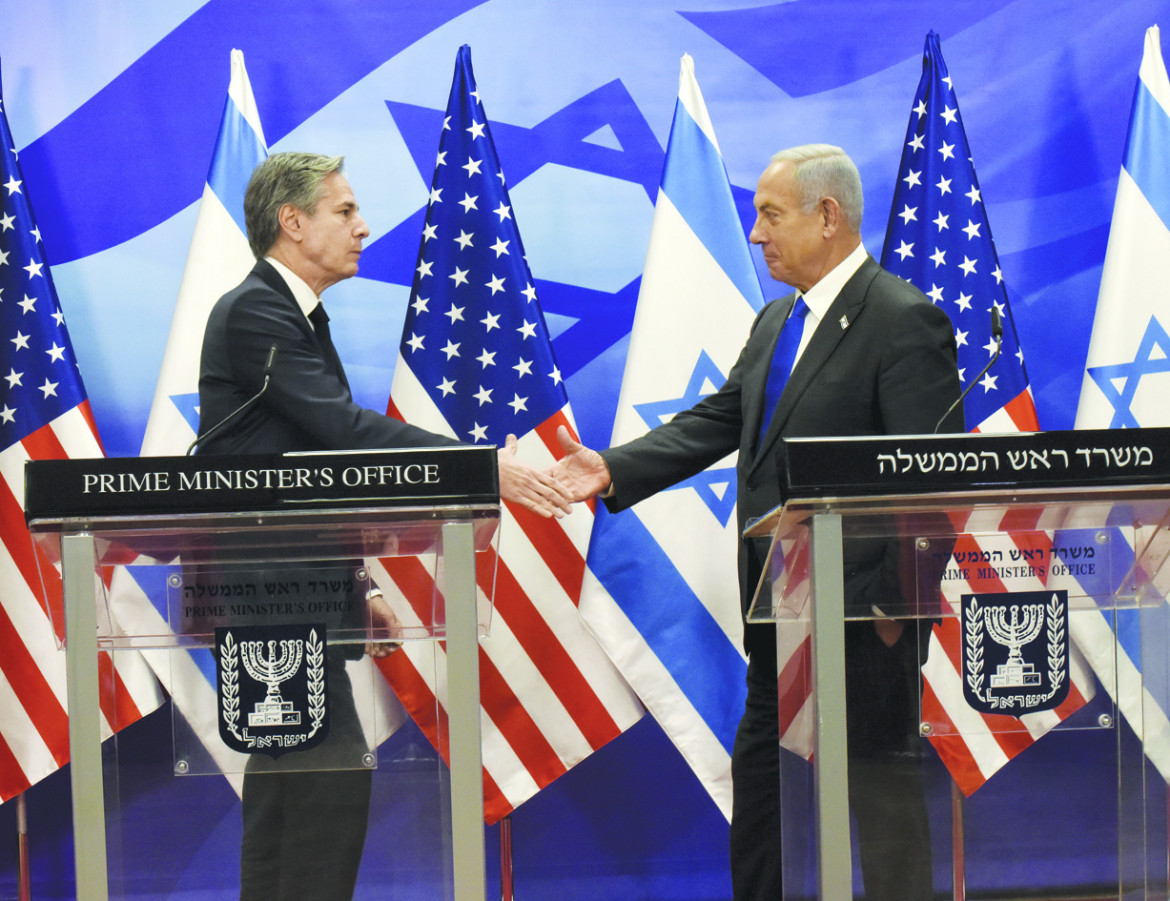Commentary
The broader war in the Middle East is already here
It is clear that in such a high-tension situation, there are several state and non-state actors interested in destabilization.

With the attacks in Iran and Beirut, another phase in the destabilization of the Middle East began, in a process that kicked off with the U.S. invasion of Iraq in 2003. In the more than 20 years since, we have seen the 2006 conflict between Hezbollah and Israel, then the Arab Springs of 2011, the Western intervention in Libya, the coup in Egypt in 2013 and the war in Syria. The map of the region has radically changed. However, the goal of some of the protagonists has not changed: according to the plans of the U.S. and Israel, the Jewish state must remain the sole regional superpower. That is the reason why the war is being waged, and why they are incurring the risk of it spreading out.
The much-touted Abraham Accords between Israel and the Gulf monarchies (pushed by Trump and inherited in full by Biden), passing over the heads of the Palestinians and the weakening mantra of “two peoples, two states,” serves – or used to serve – that purpose. The rest is barstool politics that one might hear about at a sports bar – not coincidentally, the kind of place where the assassin prince Mohammed bin Salman is aiming to recruit supporters, a friend of Putin, China, and the many officials he is paying off and bending to his will with lavish events.
It is clear that in such a high-tension situation, there are several state and non-state actors interested in destabilization. Iran is maneuvering its proxy fighters and the United States and Israel are maneuvering theirs, as amply demonstrated by the attacks in recent years in Iran and elsewhere against senior Iranian figures, including the assassination of General Qassem Soleimani in 2020, the strategist of the war against ISIS in Iraq and Syria who was killed in Baghdad by the Americans.
All the war fronts have been active for years, from Lebanon to Syria, Iraq, the Red Sea, Yemen: only our memory and willingness to take note of events are selective, in an almost paranoid way. If it’s Israel waging war, the Jewish state is “defending itself,” if others are doing so, they’re all “terrorists.” Whenever we, the West and NATO, bomb the region, we cover up our own massacres under the cover of “exporting democracy,” the defense of world order and our “values.” But what mark have our values left in Gaza and Palestine? And even in Afghanistan, abandoned to its fate after an unseemly backdoor exit.
“Give me a break,” Totò would have said: in all these three decades, have you ever seen even the slightest sanction against Israel for its abusive expansion of colonies? Have you ever seen a condemnation of Israeli violence in the West Bank? Of course not. Only George Bush senior, back in 1991, had the courage to threaten a freeze on military aid to Tel Aviv to force the Israeli government to sit down at the negotiating table with the Palestinians in Madrid.
What about now? Not only is the U.S. not calling for a permanent truce in Gaza, but it has promised another $14 billion in aid to Israel to wage war (whether one or perhaps two of them): a sort of annihilation strategy pursued against the Palestinians with no off ramp.
So much for “two peoples, two states”: we are witnessing the elimination of one of them while we do nothing about it. One could hardly expect anything else from the broad front of the West, which in recent years has abandoned the Kurds, allies in the war on the Caliphate and once praised as heroes, to the bloody repression of NATO Sultan Erdogan. Heaven forbid that those same Kurds should now attempt a democratic process from the grassroots level, inclusive of different ethnicities and religions, in the Middle East: that sounds too “leftist” to please the opinion makers in our media, now transformed into lackeys of the most boorish right.
The facts are clear and they belie our vague speculations. Israeli Prime Minister Netanyahu promised that Israel would “strike everywhere” after the massacre carried out by Hamas on October 7. His Defense Minister Gallant had already promised in the summer to send Lebanon “back to the Stone Age” in a war with Hezbollah.
Only here, in the weak-willed European Union, were people ignoring or pretending not to understand what was brewing on our doorstep. After all, conflict is the basic fuel that renders the Israeli and also Iranian governments legitimate, as well as the various Middle Eastern guerrilla movements fueled by endless injustices: a continuing emergency, a state of siege, not peace, are the ultimate goal of both the actors in the region and us in the West. This is the result when we never intervene politically to right wrongs, but allow international law – which we often invoke against our enemies and adversaries – to be trampled daily by our friends and allies.
The truth is that when injustice spreads, so does conflict, and that is the risk in the Middle East today. We know the reasons why – but, as usual, we’re looking the other way. Even if this conflict remains limited, the factors enabling more and more wars are all there: we just have to be willing to open our eyes.
Originally published at https://ilmanifesto.it/in-medio-oriente-la-guerra-allargata-ce-gia on 2024-01-05
